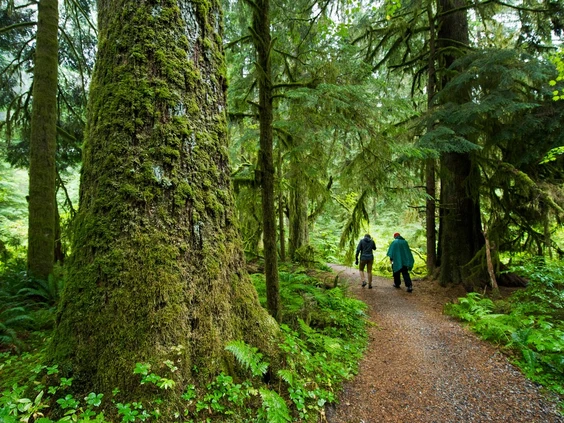
File photo: Old growth forest in the Lower Seymour Conservation area in North Vancouver. PHOTO BY ARLEN REDEKOP /PNG
Amidst concerns over the rising cost of living and the pressing climate emergency, individuals are seeking solace in nature-based therapies. During the pandemic, health authorities advocated for spending time in parks and forests as a means of alleviating anxiety, often referencing the Japanese practice of forest bathing.
Forest bathing, a term originating from Japan in the 1980s as part of a therapeutic practice known as shinrin-yoku, aims to enhance sensory experiences through immersion in nature. Guangyu Wang, a professor at the University of British Columbia's forestry department, conducted studies during the pandemic, focusing on forest therapy's impact on students' well-being.
In these studies, students were taken to Pacific Spirit Park for forest therapy sessions, which included activities such as walking, meditation, tea ceremonies, and yoga. They were encouraged to observe and engage with the sights, sounds, and smells of the forest, noting how these experiences affected their emotions.
Wang, who also heads the multidisciplinary institute of natural therapy at UBC, conducted laboratory experiments replicating forest environments. These experiments incorporated natural sounds, scents, and virtual reality technology to simulate forest experiences, providing students with an escape from university stressors.
The findings from the Pacific Spirit Park experiments revealed significant reductions in participants' blood pressure and stress levels after just two hours of forest therapy. Surveys conducted alongside the therapy sessions indicated improvements in participants' mental well-being, with some experiencing better sleep quality and clearer thinking.
Many participants reported feeling happier and more positive about their stressors after engaging in forest bathing. Wang noted that parents, in particular, expressed a newfound appreciation for nature's importance in maintaining mental health and expressed a desire to involve their children in similar experiences.
Forest bathing differs from a casual walk in the woods as it involves a structured and mindful approach to connecting with nature. Wang envisions integrating forest therapy into the public health system to provide accessible mental health support.
Recognizing the therapeutic benefits of nature, the Canadian Medical Association has endorsed the PaRx program by the B.C. Parks Foundation. This national initiative aims to prescribe nature as a form of therapy, with healthcare professionals collaborating with patients to develop personalized nature plans to enhance their well-being.















